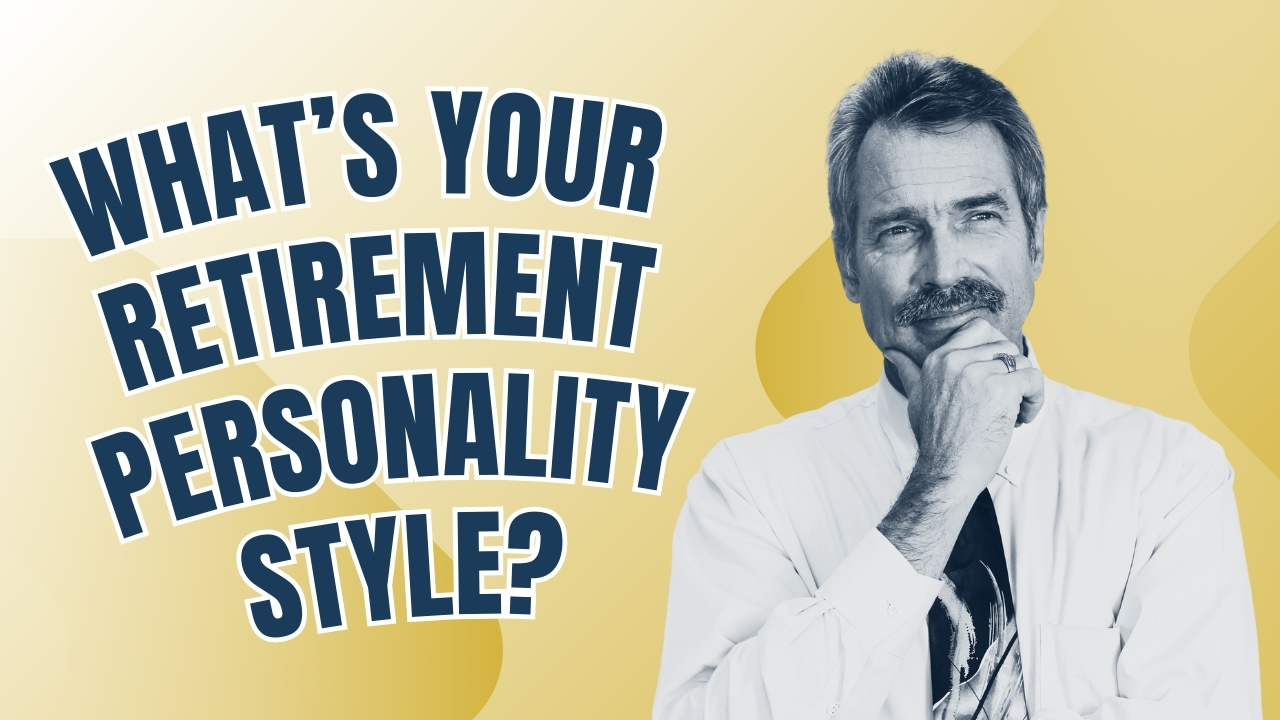Have you tried skydiving?
Skydiving is one of those experiences that leaves an indelible mark. I remember the moment vividly—the rush of adrenaline, the slight tremor in my hands as I approached the edge of the plane, and the voice in my head asking, “Are you really going to do this?” Once I jumped, there was no turning back.
But something remarkable happened after the initial wave of fear. As I soared through the sky, it was as if I’d stepped into a moment of pure freedom. The leap wasn’t just physical—it was mental and emotional. It taught me the value of letting go, trusting in something bigger than myself, and surrendering to the process. These lessons, I’ve come to realize, are just as valuable in retirement as they are in midair.
If you’re navigating the uncertainties of retirement, you might be wondering: What does letting go really mean, and how do I do it? Let’s explore the lessons I learned from skydiving and how they can guide you toward a fulfilling retirement.
Embracing the Unknown
One of the greatest lessons I’ve learned, both in skydiving and in life, is the power of perspective. I’ve always believed this:
“My perspective in my own life dictates the quality of my life that I choose to have.”
What does that mean, exactly? It means that how we see the world, the situations we face, and even the challenges we encounter shape our reality.
Some people own this idea and take charge of their circumstances, embodying a dominant personality. Others, with steady personalities, live it out quietly and consistently. Those with cautious personalities may hesitate and look for further validation before embracing it, while there are inspiring personalities who jump in wholeheartedly, treating life as an adventure.
But no matter how you approach it, perspective matters. It can determine whether you see retirement as a loss of identity or as an opportunity to create something new. Consider a situation many of us have experienced: getting cut off in traffic. It’s frustrating, right?
In those situations, it’s easy to take things personally and when we do, we easily get upset – which in truth, is sometimes what’s difficult about being human.
Did this bad driver specifically target my vehicle to cut off in traffic? Was this the plan all morning long? Was he simply waiting for me to come along at the right time and at the right place? I doubt it. Often, it’s not really just about us.
But for me, I am comfortable knowing that this bad driver did not discriminate or withhold, against other unsuspecting drivers along his travels today. That bad driver was simply just an equal-opportunity idiot, treating everyone the same.
It’s the same in retirement. Sometimes, unexpected challenges like health issues, market changes, or lifestyle adjustments feel personal. They can make us feel like life is conspiring against us. But often, they’re just part of the larger, unpredictable flow of life. Freedom comes in recognizing that we don’t have to control everything—we can choose how we respond.
Trusting the Process: Finding Freedom in Surrender

When I jumped out of that airplane, I had to trust that the parachute would open. I had to trust the instructor’s expertise and the process that had been carefully planned for my safety. That trust didn’t come easily. There was no guarantee of perfection, but there was preparation.
Retirement requires a similar kind of trust. You’ve spent years saving, planning, and working to build a foundation for this stage of life. But even the best-laid plans come with uncertainties. There are no guarantees, but there’s a process—and trusting that process is essential.
Trusting your retirement doesn’t mean ignoring challenges or risks. It means recognizing that you’ve done the work, that you’re prepared, and that you have the ability to adapt as needed. And much like in skydiving, the leap itself—taking that step into the unknown—is what makes the journey exhilarating and transformative.
Risks, Mistakes, and the Wisdom They Bring
If there’s one thing I’ve embraced throughout my life, it’s being a calculated risk-taker. Whether it was financial risks in investments, taking unpopular positions in social situations, or the literal leap out of a plane, risks have shaped who I am.
But here’s the reality of risk-taking: it doesn’t always lead to success. I’ve had my fair share of mistakes—financial losses, strained friendships, and ventures that didn’t pan out. And while those moments were painful, they were also valuable.
Wisdom, I’ve found, comes from asking yourself this critical question: “What could I have done differently in that situation?” The more discomfort you feel when reflecting on that question, the more likely you are to learn from it.
Mistakes aren’t something to fear in retirement—they’re stepping stones to growth. Whether it’s overspending in the early years, misjudging priorities, or learning to navigate relationships in a new way, these moments teach us resilience and humility.
Dr. Arthur Brooks once said something that changed how I approach relationships: “I need more friends in my life more than I need to be right.” That simple yet profound statement shifted my perspective. It reminded me that success isn’t about winning every argument or proving a point—it’s about connection, growth, and learning from one another.
Releasing “Stuff” and Unrealistic Expectations
Throughout life, we accumulate so much—physical possessions, professional titles, and expectations about how things should be. Retirement often forces us to confront those things and ask: Are they still serving me?
For me, this process started with my own mantra: Freedom and “don’t tread on me.” For years, I thought that freedom came from holding onto control. But I’ve since realized that true freedom often comes when we let go.
Maybe it’s the big house filled with items that no longer have meaning. Maybe it’s the career identity you’ve clung to for years. Maybe it’s the dream that didn’t pan out. Letting go doesn’t mean forgetting or devaluing those things—it means making space for what truly matters now.
Actionable Strategies for Letting Go
That being said, here are some simple, practical ways to help you apply the lessons of letting go:
Shift Your Perspective
Start your day by focusing on something you can control. It might be as simple as choosing to take a walk, cooking a healthy meal, or revisiting a part of your retirement plan. By intentionally shifting your focus to actionable steps, you’ll feel more empowered and less overwhelmed by uncertainties. Over time, this habit builds resilience and a positive outlook, helping you approach challenges with clarity instead of stress.
Take Inventory of Emotional Baggage

Set aside time to reflect on the emotional weight you’re carrying. Write down things like regrets, grudges, or even self-doubt. Once they’re on paper, ask yourself: Is holding onto this helping me, or is it holding me back? For example, letting go of a grudge might free you to reconnect with an old friend, while releasing regrets about the past allows you to focus on the future. Start with one item at a time—it’s a process, not a one-time task.
Review Your Retirement Plan
A retirement plan isn’t something you set and forget—it’s a living document that needs regular check-ins. Schedule time every six months to review your finances, health care strategies, and personal goals. Ask yourself: Am I still on track? Are there adjustments I need to make? Consult with a trusted financial advisor or a retirement coach if needed. This practice gives you peace of mind and helps you feel more prepared for the journey ahead.
Create a Retirement Bucket List
Take some time to dream big—or small. Write down experiences or hobbies you’ve always wanted to try, like traveling to a new country, learning a musical instrument, or volunteering for a cause you’re passionate about. Break them into actionable steps so they feel achievable. For example, if you’ve always wanted to paint, start by signing up for a local art class or buying a beginner’s kit. Revisiting this list regularly keeps you focused on what brings you joy.
Declutter Your Life
Clutter isn’t just physical—it can be mental and emotional, too. Start with your home: choose one area, like your closet, garage, or office, and go through it with a critical eye. Ask yourself: Does this item serve a purpose in my life now? Donate or discard anything that doesn’t. Then, look at your schedule. Are there commitments you’ve outgrown or activities that drain your energy? Clear them out to create space for what truly matters.
Learn From Mistakes
Mistakes aren’t failures—they’re opportunities to grow. Think about a recent misstep, whether it was financial, personal, or emotional. Instead of dwelling on it, ask yourself: What can I learn from this experience? What would I do differently next time? For instance, if a financial decision didn’t pan out, use it as a chance to reassess your strategy or consult an expert. This reflective habit helps you see challenges as stepping stones rather than roadblocks.
Strengthen Relationships

Retirement is a wonderful time to invest in the people who matter most. Choose one relationship—whether with a family member, friend, or even yourself—and focus on nurturing it. Plan a coffee date, send a thoughtful message, or simply spend uninterrupted time together. Meaningful connections add richness to life, making the retirement journey more fulfilling.
Final Thoughts on Taking the Leap
Life has a way of teaching us different lessons at different times. Usually, the lesson that appears is the one we need most. When the student is ready, the teacher will appear.
Some opportunities in life require you to take control—like driving in traffic, where you rely on defensive skills. Other opportunities call for calculated risks, whether with your finances or relationships. And then there are moments, like in skydiving or retirement, where the lesson is about letting go.
Letting go allows you to discover something so much larger than yourself. Skydiving taught me that the scariest part of any journey is often the leap itself. But once you take that step, you realize how exhilarating life can be when you let go of fear and control.
Retirement works the same way. It’s a leap into the unknown, but it’s also a chance to embrace a new kind of freedom and fulfillment. Trust your preparation, let go of what’s holding you back, and take the leap—you might just discover the best years are still ahead.
What’s one thing you’re holding onto that you’re ready to release? Start there, and see where the journey takes you.
Enjoyed this article? You might also enjoy:
Honoring the Past, Embracing the Future: Finding Purpose in Retirement Through Connection and Legacy
Finding Peace in Retirement: Aligning Your Daily Choices with Your Future Goals
Transforming Real Estate Practices: A Guide for Business Owners Selling to Trusted Experts



